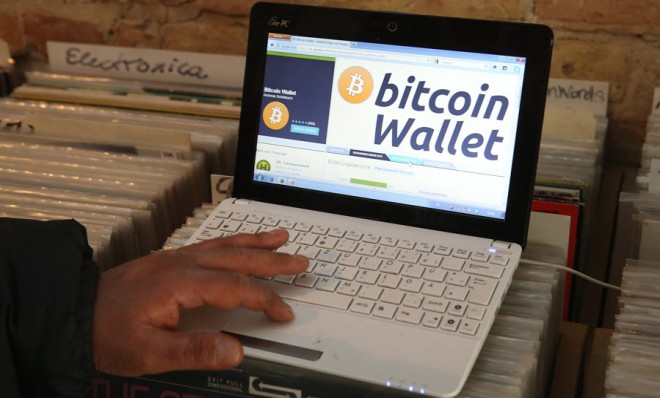Is Bitcoin just a libertarian fantasy?
The digital currency's wild fluctuations in value have skeptics saying "I told you so"

A free daily email with the biggest news stories of the day – and the best features from TheWeek.com
You are now subscribed
Your newsletter sign-up was successful
Bitcoin has been on a wild ride this week. The once-underground digital currency peaked in value at $266 per virtual coin, and then plunged to $105, causing one of the biggest Bitcoin exchanges, Mt.Gox, to temporarily halt trading.
The fact that prices eventually leveled out is proof to some that Bitcoin is a resilient, feasible form of currency. To others, like Slate's Eric Posner, however, the last week shows that it's nothing more than a libertarian fantasy. (Confused? Check out our Bitcoin explainer here.)
Bitcoin appeals to tech-savvy libertarians, Posner argues, because of its anonymity and lack of oversight:
The Week
Escape your echo chamber. Get the facts behind the news, plus analysis from multiple perspectives.

Sign up for The Week's Free Newsletters
From our morning news briefing to a weekly Good News Newsletter, get the best of The Week delivered directly to your inbox.
From our morning news briefing to a weekly Good News Newsletter, get the best of The Week delivered directly to your inbox.
Fundamentally, Bitcoin unites futuristic left-wing internet anarchism — the fantasy that the web can provide the conditions for a governmentless society — with the cave-dwelling right-wing libertarianism of goldbugs who think a stable money supply can be established without government involvement. It is proof for both that government is not needed for much, or at all. [Slate]
If you have a computer and hate taxes and bank fees (and really, who doesn't?), then Bitcoin represents a way to break the chains of Big Government and do with your hard-earned virtual money whatever you see fit. Over at Medium, Felix Salmon says "Bitcoins hold exactly the same gleaming promise for techno-utopians as gold does for Glenn Beck."
Libertarians wouldn't necessarily disagree. (You can, in fact, currently make donations to the Libertarian Party in Bitcoins.) In Libertarian News, Michael Suede defends the recent fluctuations:
There were some banking panics that took place prior to 1933 (much like the Bitcoin exchange panics we see today), but the only times America experienced a major depression under the gold standard were the periods when the central bank monkeyed with the money supply (something that wouldn’t be possible under a 100 percent reserve privately run gold standard). [Libertarian News]
But what some call monkeying with the money supply, others call "printing more money, so that economic activity is not choked off by scarcity or hoarding," writes Matthew Zeitlin at Bloomberg. Zeitlin goes on to argue that "since Bitcoins can only be produced at a predetermined rate, deflation is a constant possibility, or that Bitcoins turn more into a commodity people buy than a currency people use."
If anything, the evidence over the last week suggests that Bitcoins have become both a commodity and a currency, leading to hoarding and rising prices.
A free daily email with the biggest news stories of the day – and the best features from TheWeek.com
This is a problem, Posner argues at Slate, because "as the economy grows, a fixed-supply currency becomes worth more in terms of goods and services, and people begin to hoard it — expecting that if they wait a little longer, they will be able to buy more. Once hoarding takes over, circulation ends, and with it the function of the currency."
Ultimately, a lot of arguments against Bitcoin are the same arguments against the gold standard. "Currencies such as the dollar, with a central bank which can print money at will, have succeeded for a reason," Salmon writes at Medium. "As economies grow, the money supply has to be able to grow with them. And that's why Bitcoin can never really succeed over the long term."
The currency of the future? Maybe not. But that doesn't mean it isn't fascinating.
Keith Wagstaff is a staff writer at TheWeek.com covering politics and current events. He has previously written for such publications as TIME, Details, VICE, and the Village Voice.
-
 ‘The West needs people’
‘The West needs people’Instant Opinion Opinion, comment and editorials of the day
-
 Filing statuses: What they are and how to choose one for your taxes
Filing statuses: What they are and how to choose one for your taxesThe Explainer Your status will determine how much you pay, plus the tax credits and deductions you can claim
-
 Nan Goldin: The Ballad of Sexual Dependency – an ‘engrossing’ exhibition
Nan Goldin: The Ballad of Sexual Dependency – an ‘engrossing’ exhibitionThe Week Recommends All 126 images from the American photographer’s ‘influential’ photobook have come to the UK for the first time